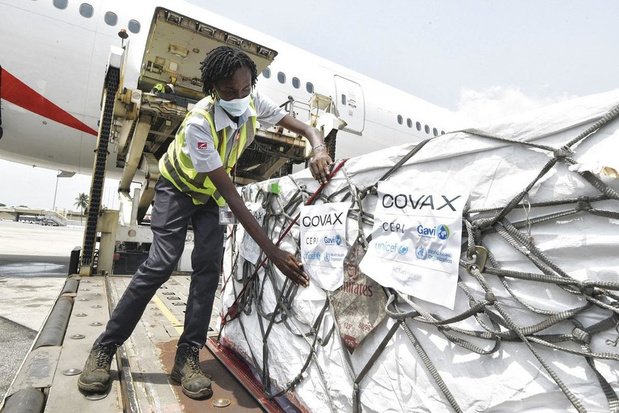Experts have identified more than 100 companies that are able to produce Covid-19 vaccines, highlighting that the production of these shots could be increased if vaccine patents were to be lifted.
Human Rights Watch (HRW) and various other human rights organisations sent the list of companies to the US and German governments. The companies are mainly located in Asia, Africa and Latin America and have the potential to produce mRNA vaccines in regions that have had comparatively low access. The experts urged the two governments to pressure pharmaceutical companies into sharing their technology.
“The US and German governments should press for wider technology transfers and not let companies dictate where and how lifesaving vaccines and treatments reach much of the world as the virus mutates," said Aruna Kashyap, HRW's associate business and human rights director. The letter comes in light of the emergence of the Omicron variant, which "underscored the dangers of severely unequal access to Covid-19 vaccines and the concentration of production in the US and Europe."
Struggling to reach 70% target
The World Health Organisation warned on Tuesday that Africa may not reach the 70% target for Covid-19 vaccination – the mark considered essential to control the pandemic – until August 2024 at the current rate of vaccination rollout. Meanwhile, an 83% surge in new Covid-19 cases had been recorded in the past week, driven by the new variant.
There are six times more boosters being administered globally every day than first doses in low-income countries.
HRW stressed that diversifying and scaling up global production in low- and middle-income countries through sharing of knowledge and technology would better position the world to collectively respond to the pandemic.
Related News
- Almost 7 in 10 Belgians favour restrictions for non-vaccinated
- Pfizer's anti-Covid pill reduces risk of hospitalisation by almost 90%, study shows
- Belgium supports 9-month limit for EU Covid pass without booster
It argued that it is not impracticalities but a lack of willingness that is stopping pharmaceutical giants who have developed vaccines from sharing their knowledge and technology widely with capable manufacturers.
“These companies can bridge the yawning inequity in mRNA vaccine supply in poor countries. All they need is for the US and German governments to end monopolies and share the valuable technology they funded and essentially created with them," said Achal Prabhala from the AccessIBSA project, which published the list.
Lifting of patents
In order for the more than 100 companies on the list to produce the vaccines, they need access to intellectual property, vaccine technology, and materials.
Lifting these patents has become a controversial debate which earlier this year caused a rift between the European Parliament, which called for the temporary lifting of intellectual property rights protection for Covid-19 vaccines, and the Commission, which argued for compulsory licences so that public authorities could stop patent holders from refusing to license their inventions.
Any decision on lifting intellectual property rights would, however, be taken by the WTO TRIPS Council. The US and more than 60 low- and middle-income governments have shown their support for the waiver.

A nurse holds a dose of vaccine at Sheikh Zayed Hospital in Nouakchott, Mauritania. Credit: UNICEF/Raphael Pouget
Several European Member States, including Germany, maintained their reservations about a temporary lifting of patents on vaccines against Covid-19 at a meeting of the World Trade Organisation (WTO) in June.
Western governments, including those of the US and Germany, provided significant additional funding to BioNTech-Pfizer, Moderna, and J&J to help them develop and produce vaccines during the pandemic. Most of these vaccines have been delivered to high-income countries.
"The US and German governments now have a responsibility to press those companies to share knowledge and technology more widely," Human Rights Watch said.
Response from pharma giants
The large pharmaceutical companies that currently produce the vaccines have also failed to join WHO-led initiatives to pool and share the intellectual property; Pfizer, BioNTech, and Moderna have yet to participate in the WHO’s mRNA technology transfer hub.

Many poorer regions have been dependent on the goodwill of richer states to donate vaccines, often via the international Covax programme. Credit: Belga
In response to HRW questions about why they still withhold patents and resources for vaccine production, Pfizer said that 'only a few facilities in the world are able to perform the critical steps needed to manufacture those vaccines at a large scale'.
Moderna denied any knowledge of 'idle mRNA manufacturing capacity' – a claim that is difficult to maintain given the HRW list of companies that could produce vaccines.
J&J did not respond to repeated requests for information and comment.
Human rights organisations stressed that world leaders have "repeatedly promised solidarity, cooperation with the global community," and that they now urgently need to deliver.

